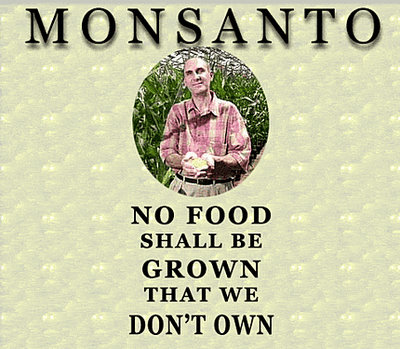You may not know it, but genetically modified and processed foods are everywhere. The odds are excellent that you’ve already eaten something made with at least one genetically modified ingredient today, and you probably had no idea! But it is important to know this because, despite what food manufacturers would have us believe, it’s not safe to assume that they are safe.
Genetically modified (GM) foods have become ubiquitous in our food supply since 1996, when GM soy, corn, canola and cottonseed oil were first introduced. Food manufacturers in many other industrialized nations have been banned from selling GM foods, but here in the US, it’s estimated that 70% to 75% of our foods contain genetically modified ingredients.
Refined Foods Are Prime Targets For Genetic Modification
Refined foods are highly processed foods that have been stripped of their original nutrient content and fibre. Refined white flour, white pasta, and white sugar are just some examples of foods that may be genetically modified.
Consider a loaf of sliced white bread. First, the wheat is stripped of bran and fibre, and then it’s pulverised into the finest white flour. The baking process puffs it up into light, airy slices of bread. No wonder your stomach makes such quick work of it. A slice of white bread hits your bloodstream with the same jolt you’d get by eating a tablespoon of sugar right from the bowl!
What’s for Dinner?
A Consumer Reports poll found that 95% of Americans wish GM foods were labeled, and a poll from The New York Times/CBS found that more than half of those surveyed said that they would avoid foods with such a label. But it doesn’t matter what people want: The US requires GM foods be labeled only if they are nutritionally different from non-GM versions of the same foods and so far, the FDA has deemed GM foods as “substantially equivalent,” so … no labels. According to food-safety advocate Jeffrey M. Smith, founder and executive director of the Institute for Responsible Technology and author of the books Seeds of Deception and Genetic Roulette, this is a “win” for the US food manufacturers who prefer, of course, that we blithely continue buying and eating these foods without a clue.
The methodology for making GM foods sounds like science fiction, taking Mendel’s original genetic learning to a whole new level. Scientists working in labs take genes from one organism — a plant, animal, bacterium or virus — and splice them to the genes of another organism (a food crop or animal) to produce genetically altered offspring that will reproduce for agricultural purposes. As a result, we now have, for instance, corn that kills insects and “enviro-pigs,” whose manure is easier on the environment. While the biotech industry claims that these GM foods are safe, scant human research has been done — and the studies of animals fed these foods raise more concerns than they quell.
What are the Dangers?
According to the American Academy of Environmental Medicine (AAEM), “GM foods pose serious health risks in the areas of toxicology, allergy and immune function, reproductive health, and metabolic, physiologic and genetic health.” Here are some reasons for concern…
GM foods have been linked with food allergies. Soon after GM soy was introduced in the UK, reports of allergic reactions to soy products skyrocketed by 50%. There are many known differences between GM and natural soy that could account for such a surge — for instance, cooked GM soy has as much as seven times more of a common soy allergen than natural cooked soy… there are higher herbicide residues on the GM soy… and research has shown that GM soy triggers changes in immune and/or digestive functioning that don’t occur with natural soy.
Antibiotic resistance can get worse. Antibiotic resistance is already a huge public health problem, and GM foods may well make it worse, since certain genes (such as ones that come from bacteria) used in the process can combine with disease-causing microbes in the environment or in the guts of animals or people who eat them.
GM foods have been linked with certain types of cancer. Cows in the US are routinely injected with genetically engineered bovine growth hormone so that they will produce more milk. Milk from these cows has higher levels of IGF-1, a hormone linked with breast, prostate, colon, lung and other cancers.
GM foods aren’t as nutritious and may even be toxic. Scientists have found lower concentrations of heart-protective phytoestrogens in GM soybeans than in natural soybeans and, in a 1999 study, GM potatoes wrought damage in the immune systems and vital organs of rats.
There may be serious collateral environmental damage. Neighboring crops can be contaminated by GM crops… beneficial insects can be harmed, which would impact the food chain and alter soil fertility… there’s potential to create “super-weeds” and “super-pests” able to resist conventional herbicides and pesticides… and it’s hard to predict what will happen when GM organisms “escape” into the environment.
How to Avoid Food with GMOs
The AAEM has called for long-term independent studies of health risks of GM foods… asked that there be a labeling requirement for GM foods… and requested a moratorium on the sale of GM foods until doctors have had a chance to educate their patients to avoid them. In the meantime, if you decide that you don’t want to include GM foods in your diet, Smith recommends that you take the following four steps…
- Buy organic. Certified organic products cannot include GMO ingredients.
- Read labels carefully. Some smart marketers already use a “non-GMO” label on their products and soon you’ll begin seeing a new “Non-GMO Project Verified” seal on thousands of products. This means that the product, even if not organic, has met a uniform non-GMO standard and undergone third-party verification. Also, for dairy products, either buy organic or look for those that are labeled “No rBGH or rbST” or “artificial hormone-free.”
- Beware of red-flag ingredients. Some ingredients are all but certain to be genetically modified if they were grown here in the US. These include soy (an estimated 93% is genetically modified)… sugar beets (95% GM)… corn (86% GM)… and cotton (used for cottonseed oil, 93%).
- Download a free non-GMO shopping guide. To help identify healthier alternatives to the hundreds of unlabeled GM foods, download a free non-GMO shopping guide at http://www.NonGMOShoppingGuide.com. If you have an iPhone, iPad or iPod Touch, visit the iTunes store for a free ShopNoGMO application. Use these to create a personalized non-GMO favorites list.
Foods That Might Contain GM Ingredients
| Artificial Sweeteners | Margarine |
| Baking Powder | Mayonnaise |
| Bread | Meat Substitutes |
| Candy | Peanut Butter |
| Canola Oil | Protein Powder |
| Cereal | Rapeseed Oil |
| Chips | Salad Dressing |
| Chocolate | Soda |
| Cookies | Soy Cheese |
| Cornmeal | Soy Flour |
| Cornstarch | Soy Protein |
| Cottonseed Oil | Soy Sauce |
| Crackers | Sugar that is not 100% Cane |
| Dairy Products from GM-Treated Cows | Tamari |
| Enriched Flour (all kinds, not just white) | Tempeh |
| Food Additives | Tofu |
| Fried Foods | Tomato Sauce |
| Frozen Yogurt | Vegetable Oil |
| High-Fructose Corn Syrup | Veggie Burgers |
| Hot Dogs | |
| Ice Cream | |
| Infant Formula |


 November 4, 2010
November 4, 2010 



















No comments yet... Be the first to leave a reply!